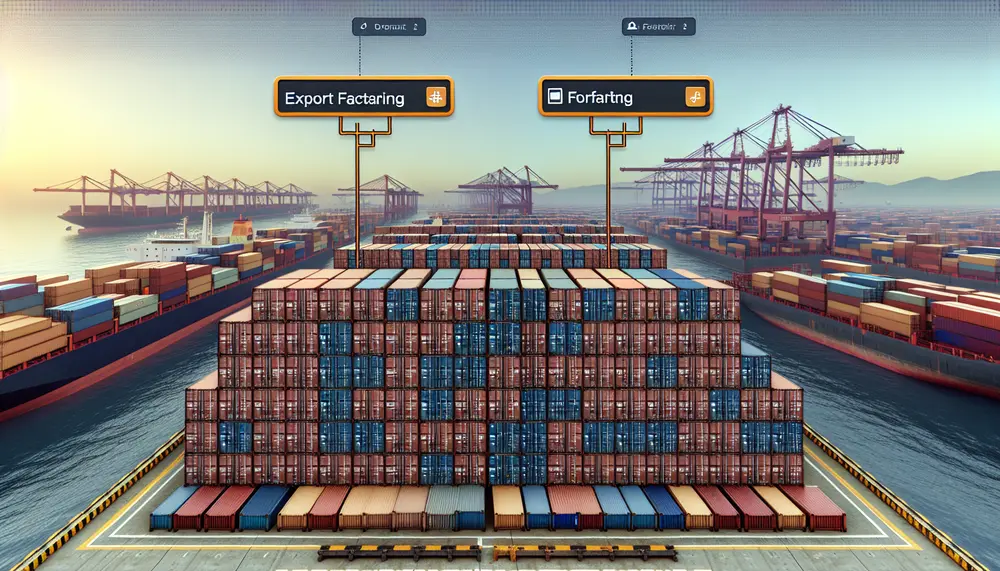Posts on the Topic Risk

A factoring company account provides businesses with immediate cash flow by converting invoices into working capital, offering benefits like credit management, scalability, and reduced financial stress. It enhances operational efficiency, supports growth, and ensures predictable finances without adding debt to...

The article explains the differences between debt collection and factoring, highlighting that debt collection targets overdue invoices to recover funds while factoring involves selling current invoices for immediate cash flow. It discusses key distinctions such as timing, payment speed, responsibility,...

Technology is crucial for factoring banks, enhancing risk management and operational efficiency through tools like data analytics, automation, blockchain, and CRM systems. These technologies help in assessing credit risk, automating processes to reduce errors and save time, ensuring secure transactions,...

Export factoring is a financial service that helps businesses convert international invoices into immediate cash, improving liquidity and reducing the risk of non-payment from foreign buyers. Banks facilitate this process by acting as intermediaries between exporters and factoring companies, providing...

Export factoring services provide immediate cash flow for businesses by purchasing their accounts receivable, thus helping manage the financial complexities of international trade and improving liquidity. These services also offer added benefits like credit risk management and collection assistance, which...


































